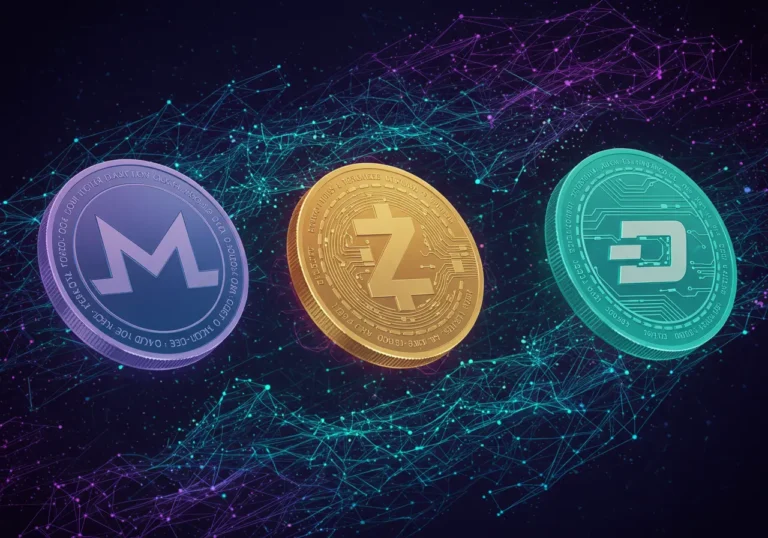Smart Contract Audits: Why They’re Important to Keep You Safe

Have you ever had that heart-sinking feeling right after you hit send? You know, maybe you texted the wrong person or accidentally paid the wrong bill? Yeah, me too.
Now imagine it’s not just a tiny little mistake. Imagine losing a big chunk of your savings because of a simple error. Scary stuff, isn’t it? That’s exactly why something called smart contract audits have become so important lately.
But wait—what on earth is a smart contract anyway?
So, What’s a Smart Contract?
When I first heard the term “smart contract,” I’ll be honest—I pictured robots signing papers with fancy pens. Not exactly right, haha. It’s actually simpler than that.
Think of a vending machine. You put your coins in, press a button, and the snack drops out automatically. No human cashier needed, right? Smart contracts are a lot like that vending machine. They handle transactions all by themselves, online. You set them up to automatically do something when certain conditions are met.
For example, maybe you want to send your friend 10 dollars every Friday automatically. Or perhaps you’re buying a house, and once you’ve paid, the keys automatically unlock—I kid you not, that’s a thing now. That’s a smart contract in action.
Simple enough, isn’t it? But as cool as this sounds—you know automation and robots and all that—things aren’t always perfect. Just like vending machines sometimes eat your dollars, smart contracts can mess up too. And when they do… oh boy.
Why Do Smart Contracts Need Audits Anyway?
Okay, let’s keep things simple. If you’re about to take your car on a family road trip, you get it checked out first, right? Oil, tires, brakes—the works. Because you don’t want to break down miles from home.
That’s basically what a smart contract audit does. Before folks start using these smart contracts, skilled people take a close look at the details to make sure they’re safe, secure, and do exactly what they’re supposed to.
If they don’t double-check, a tiny mistake can become an expensive disaster. Not fun at all.
Some Common Smart Contract Problems: Like Reentrancy (Don’t panic—I’ll explain!)
You’re probably wondering: “Okay, sounds important—but what kind of mistakes can actually happen?”
Well, there’s one problem you might hear about more often than others, and it’s got a strange-sounding name: “reentrancy.” Sounds complicated, but let me simplify: Think of an ATM that gives you cash before checking how much money you really have. Imagine if someone discovered they could trick it to keep spitting out bills over and over. Pretty soon, you’d be cleaned out, and the bank would have some not-so-pleasant news for you.
That’s basically what reentrancy does: one little mistake letting the contract repeat itself again and again, draining all the money. Yikes.
Audits catch problems like this before they turn into real-life nightmares.
How Do These Audits Work in Real Life?

So how does a smart contract audit actually happen?
It’s basically like proofreading a letter before putting it in the mail. A specialist—a bit like a detective—carefully reads the contract’s code to find mistakes or anything suspicious.
And—here’s a neat thing I learned—today there are tools that help the auditor checks faster, like Mythril or Slither. These are sort of like spell-checkers on steroids for smart contracts.
There’s even talk about using AI now to double-check these systems. Imagine a robot that checks the work of other robots. Makes your head spin a little, doesn’t it?
What’s the Best Language to Write Them: Solidity or Rust?
- Solidity is like the trusted old car everyone drives. It’s pretty easy to learn, lots of people use it, especially to build stuff on Ethereum.
- Rust, though, is more like a shiny new electric vehicle. Fancy, secure, and powerful—but maybe trickier for a total beginner.
So, which one’s best? Honestly, it just depends on what you’re doing. Solidity is usually good enough for most everyday people and beginners, and Rust is more for heavy-duty stuff—or at least that’s what my coder friends tell me.
Smart Contracts aren’t Just DeFi—They’re Everywhere Now
A couple of years back, I thought smart contracts were just about cryptocurrency—moving crypto coins around. But no, turns out that’s just scratching the surface.
People use smart contracts for buying homes (no more waiting forever for paperwork), managing insurance policies (think claims that auto-pay when there’s a delay), and even tracking how food is shipped from the farm to your plate. Pretty wild stuff, right?
All the more reason to make sure these contracts get a thorough audit. Wouldn’t want someone’s lunch delivery ending up halfway around the world, am I right?
Quick Question—Are Smart Contracts Legally Binding in the US?
Short answer: yeah, most of the time. If you make a smart contract with someone here in the States, chances are it’s binding legally. That makes auditing even more serious. You wouldn’t casually sign some paper you never read, right? Same goes for smart contracts.
Table of Contents
What About Those Ethereum Gas Fees? Can Audits Help?
One thing I learned the hard way: Ethereum gas fees can really add up.
But did you know audits could actually help with this too? By double-checking and simplifying how the contract is coded, you could lower those fees. It’s like streamlining your luggage before you get charged extra baggage fees at the airport—worth the little bit of extra effort up-front.
And If You Wanted to Try Writing a Smart Contract Yourself…?
Maybe you’re getting curious, thinking, “I might like to try writing one of these myself. Where would I start?”
Good news—it’s not as hard as it sounds. There’s no shortage of online guides showing you how to write and deploy a smart contract on Ethereum. Some even walk you through the steps like baking a cake recipe.
Just remember: test, test, test. And before letting lots of people use it, get the contract audited.
Trust me, I’ve seen friends skip that step and pay the price later. Better safe than sorry, as my grandma used to say.
At the End of the Day, Audits Give us Peace of Mind
Like I said in the start, making mistakes is human. We all mess up sometimes—sending money to the wrong number, losing our phones somewhere between the sofa cushions. It happens to the best of us.
But smart contracts can’t afford careless mistakes. They’re handling real money—yours and mine—and sometimes really big decisions.
Here’s what smart contract audits really do: give us all peace of mind. Knowing that someone took the time to carefully go through that contract could save you a lot of trouble down the road.
So, before using that next shiny new smart contract, ask yourself: has it been checked over? If not, maybe hold off a bit until someone makes sure it’s good to go.
Quick Points to Remember:
- A smart contract is just an automated digital agreement, like a vending machine.
- Audits check these contracts for mistakes to avoid losing money or worse.
- Common problems (like reentrancy) are easy to miss but costly.
- Solidity is good for starters; Rust is more for experts.
- They’re used everywhere—real estate, insurance, even food shipping.
- Many US smart contracts are legally binding.
- Audits can help save money by reducing Ethereum gas fees.
- You can try your hand at writing one yourself—just make sure it’s audited!
There you have it. Now you’re a little smarter about smart contracts and why audits keep us safer. After all, a few careful checks upfront can save many headaches later.

Hello, I’m Edmilson Dias, founder of CoinBringer. I created this platform to guide people through the fast-moving world of cryptocurrency with clarity and safety. With years of research in blockchain and digital security, my goal is to translate complex topics into practical knowledge, offering reliable tutorials, safety insights, and guidance for both newcomers and experienced users.
Discover more from CoinBringer
Subscribe to get the latest posts sent to your email.







